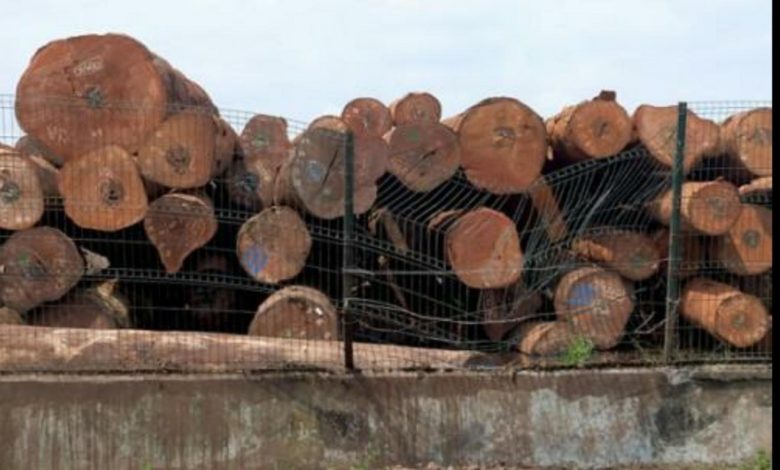Greenpeace Commends Cameroon For Rejecting Tax Reduction For Timber Exploiters

The international environmental non-governmental organisation, Greenpeace, has expressed satisfaction over the rejection by the Cameroonian government of demands by timber exploiters in the country for tax reduction, using the negative effects of the COVID-19 as the reason for their requests.
The rejection by the government of the demand is indicated in the revised 2020 finance law which does not include any tax incentives for timber exploiters decreed by President Paul Biya on June 3, 2020.
In a communiqué published on Thursday, June 11, the Representative of Greenpeace Africa in Cameroon, Ranece Jovial Ndjeudja, said: “By not ceding to the lobbying by forestry exploitation companies, particularly at this time of the COVID-19, signifies an increase in the public financing available for our sanitary system and our infrastructure.
“We call on government to take advantage of this crisis to turn its back on the forestry exploitation sector and concentrate on real durable sectors such as renewable energy and agricultural ecology.
“We are hoping that the 2021 finance law that would be voted by parliament in November would lay the foundation for an economy that does not aggravate climatic emergencies and does not threaten biodiversity nor our health.”
The presidential decree revising the 2020 finance law was published a day after Greenpeace Africa called on government to reject an appeal for tax reduction by the Groupement de la Filiere Bois du Cameroun – Cameroon Timber Sector Grouping – on the excuse that their businesses had been adversely affected by the COVID-19 pandemic.
The group had called for the suspension of the annual forestry royalties they pay to government, a 50 per cent reduction in taxes on transformed wood paid to the customs to 5.6 per cent instead of 10 per cent envisaged in the 2020 finance law and a reduction in the felling tax from four per cent budgeted in the 2020 finance law to 2.5 per cent.
It is certain the rejection of any palliative measures in favour of forestry exploiters would not gladden Greenpeace alone as a majority of Cameroonians are unhappy with the destruction of Cameroon’s forestry reserves by timber exploiting companies, which effects are mostly negative on the rural populations in whose communities the timber companies operate.
“When they apply for timber licences and come here for community consultation, they promise us heaven and earth, but once they are granted the licences, they refuse to implement even the most basic social amenities required of them. They destroy our farms and our natural environment in exchange for nothing,” Achancho Isaac, a farmer in Bakogo village declared angrily to HumAngle on Thursday evening.
Support Our Journalism
There are millions of ordinary people affected by conflict in Africa whose stories are missing in the mainstream media. HumAngle is determined to tell those challenging and under-reported stories, hoping that the people impacted by these conflicts will find the safety and security they deserve.
To ensure that we continue to provide public service coverage, we have a small favour to ask you. We want you to be part of our journalistic endeavour by contributing a token to us.
Your donation will further promote a robust, free, and independent media.
Donate HereStay Closer To The Stories That Matter




